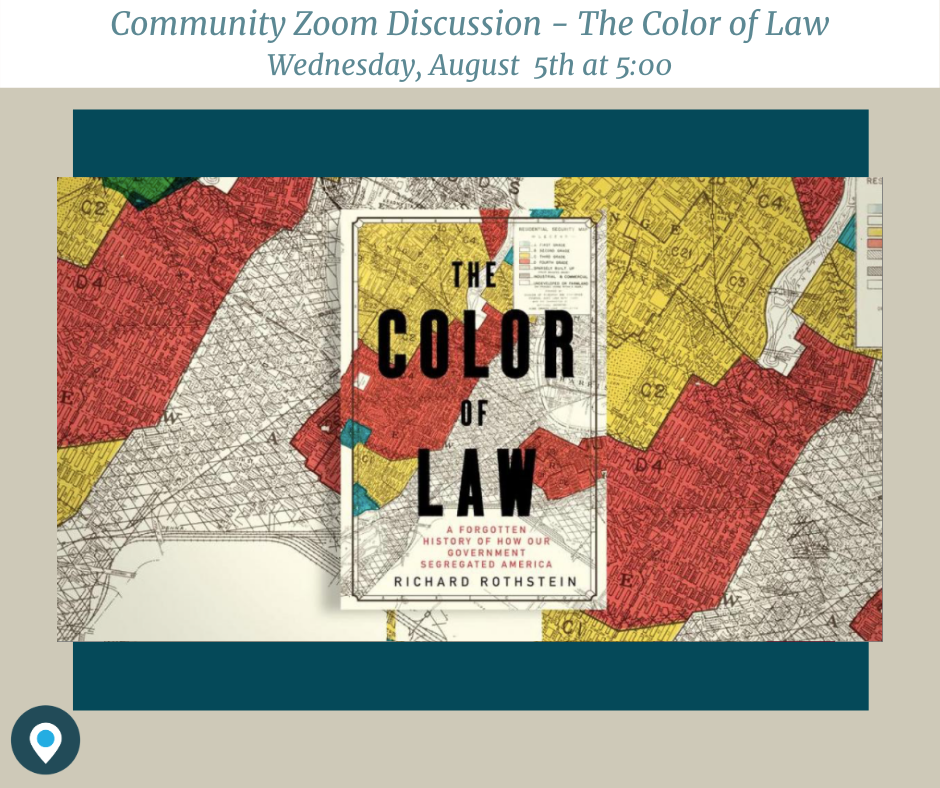
Between 1934 and 1962 the federal government underwrote $120 billion in new housing loans. Less than 2% went to non-whites. It’s an ugly history and it’s our history.
“Undoing the effects of de jure segregation will be incomparably difficult. To make a start, we will first have to contemplate what we have collectively done and, on behalf of our government, accept responsibility.”
– Richard Rothstein, The Color of Law: A Forgotten History of How Our Government Segregated America
______________________________________________________________________________
Join us on Wednesday, August 5th at 5:00 PM for a Zoom discussion of Richard Rothstein’s The Color of Law.
We’ll be using a “book group” format, with select guests kicking off discussion of key topics explored in the book. You can join the discussion on August 5th at 5:00 PM by clicking here. We hope to see you!
______________________________________________________________________________
Reviews for The Color of Law
“Essential… Rothstein persuasively debunks many contemporary myths about racial discrimination…. Only when Americans learn a common–and accurate–history of our nation’s racial divisions, he contends, will we then be able to consider steps to fulfill our legal and moral obligations. For the rest of us, still trying to work past 40 years of misinformation, there might not be a better place to start than Rothstein’s book.”
— Rachel M. Cohen, Slate
“Masterful… The Rothstein book gathers meticulous research showing how governments at all levels long employed racially discriminatory policies to deny blacks the opportunity to live in neighborhoods with jobs, good schools and upward mobility.”
— Jared Bernstein, The Washington Post
“Rothstein’s comprehensive and engrossing book reveals just how the U.S. arrived at the ‘systematic racial segregation we find in metropolitan areas today, ‘ focusing in particular on the role of government…. This compassionate and scholarly diagnosis of past policies and prescription for our current racial maladies shines a bright light on some shadowy spaces.”
— Publishers Weekly [starred review]
“Virtually indispensable… I can only implore anyone interested in understanding the depth of the problem to read this necessary book.”
— Don Rose, Chicago Daily Observer

